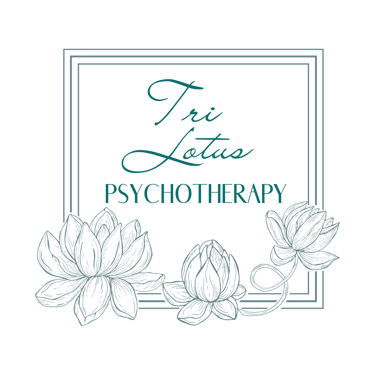NOW ACCEPTING NEW CLIENTS: In-Person in Calgary & Online across Alberta Book a Free 20min Introductory Call! CLIENT LOGIN


Anxiety Therapy
IN-PERSON IN CALGARY & ONLINE ACROSS ALBERTA
Compassionate and inclusive therapy for anxiety. Helping you detach from your thoughts and calm your body, so that you can finally relax.
Free 20 minute phone consultation
Breathe easier, calm your mind, and feel more
like yourself again.
Anxiety feels like your body and mind are stuck in “go” mode, on edge, even when there’s nothing to run from.
Thoughts race, replay, and spiral. Often worrying about what might happen, what you need to do next, replaying what did happen, and planning for every possible “worst-case scenario.” Falling asleep is a struggle because you can't shut your mind off.
Your chest might feel tight, your heart beats faster, and your stomach's upset or nauseas. Even small things seem urgent or overwhelming. You may be losing patience with your partner, friends, kids or at work and noticing that you feel more irritable.
You might replay conversations, google your symptoms, overthink decisions, or plan endlessly just to feel some control. But the more you try to calm it, the louder it gets - you don't feel in control of your emotions.
And it’s exhausting.
At Tri Lotus Psychotherapy, we can help you uncover what's causing your anxiety, develop tools to cope with it, and learn detach from your anxious thoughts so that you can finally find some calm.
Free 20 min Phone consultation


What is Anxiety and how can counselling for anxiety help?
Anxiety is a natural response to stress, characterized by feelings of worry, fear, or unease about potential future events.
Anxiety becomes problematic when it feels constant or overwhelming, interfering with daily life.
For many, anxiety creates a heightened state of alertness, where even small challenges feel like major threats. It’s as though the mind and body are stuck in a “fight or flight” response, making it difficult to relax or feel at ease.
Therapy can help individuals understand, manage, and reduce the impact of anxiety, allowing for a more peaceful, balanced life.
Common Anxiety Symptoms
Constant Worry: Persistent, often uncontrollable, worry about daily situations, big or small.
Restlessness: Feeling keyed up, on edge, or unable to relax.
Difficulty Concentrating: Trouble focusing or staying present, often due to racing thoughts.
Physical Symptoms: Tension in the body, muscle aches, or frequent headaches.
Sleep Disturbances: Difficulty falling asleep, staying asleep, or waking up feeling unrested.
Irritability: Feeling easily frustrated, tense, or overwhelmed by minor stressors.
Increased Heart Rate: Palpitations or a feeling of tightness in the chest, especially in stressful situations.
Excessive Fatigue: Feeling drained, often due to mental strain or sleep issues.
Avoidance Behaviors: Avoiding situations, people, or tasks that could trigger anxiety.
Digestive Issues: Stomach discomfort, nausea, or changes in appetite.
Panic Attacks: Episodes of intense fear, often with physical symptoms like sweating, shaking, or shortness of breath.






















Generalized Anxiety Disorder (GAD)
is marked by persistent and excessive worry about a wide range of everyday situations, often out of proportion to the actual risks.
Anxiety treatment for GAD helps you break free from constant worry, teaching you ways to calm your mind and body so you can feel more at ease and fully enjoy life.




Panic Disorder
is characterized by recurring, unexpected panic attacks—sudden episodes of intense fear or discomfort that peak within minutes. The fear of future attacks often leads to avoidance behaviors, impacting daily life.
Panic Disorder is treatable, and with the right support, individuals can learn to manage and reduce the frequency and intensity of panic attacks.


Specific Phobias
are intense fears of a specific object or situation, such as flying, heights, or spiders. These fears can lead to avoidance behaviors and significant distress, even when the threat is not dangerous.
Anxiety treatment for specific phobias can help you to manage these fears and overcome them, using therapies like, exposure therapy or EMDR.
Types of Anxiety We Treat
Therapies for Anxiety Treatment


Cognitive Behavioural Therapy (CBT)
Understand how your thoughts, feelings, and behaviours are connected - and how this cycle can fuel anxiety. In therapy, you’ll learn practical tools to challenge anxious thinking, manage overwhelming emotions, and gradually face the things you’ve been avoiding. CBT is designed to help you build confidence, reduce anxiety, and develop coping skills you can carry with you throughout life.
Acceptance and Commitment Therapy (ACT)
Learn how to detach from your thoughts and move through the physical sensations of anxiety so that they no longer have control over you. When we conquer avoidance associated with anxiety, we can commit to our values and live the life that we want. This approach focuses on anxiety relief techniques.
Emotion-Focused Individual Therapy (EFIT)
Address the root cause of your anxiety. Discover the core emotions underlying your anxious symptoms and process them in a safe and supportive environment to release their hold over you.
Eye Movement Desensitization and Reprocessing (EMDR)
EMDR for anxiety treatment helps by processing past traumatic or distressing experiences that may be contributing to present-day anxiety. Through bilateral stimulation, EMDR helps rewire the brain’s response to these memories, reducing their emotional charge and allowing for healthier coping mechanisms and a greater sense of calm in the present.
Free 20 min Phone consultation
Mindfulness for Anxiety
Informal mindfulness practices and mindfulness meditations teach you how to observe your thoughts and present moment experience without judgment. You can learn to observe anxious thoughts without getting overwhelmed by them, creating space between you and your anxiety. This reduces the power anxiety has over you and reduce the physical symptoms of anxiety.
Find a Therapist
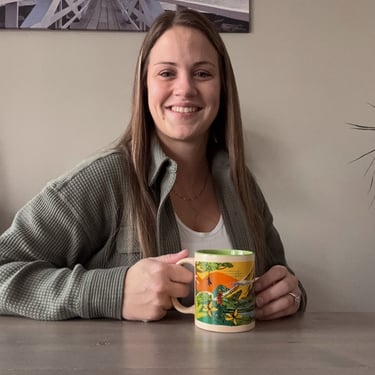
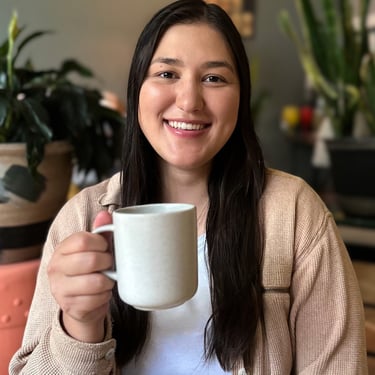

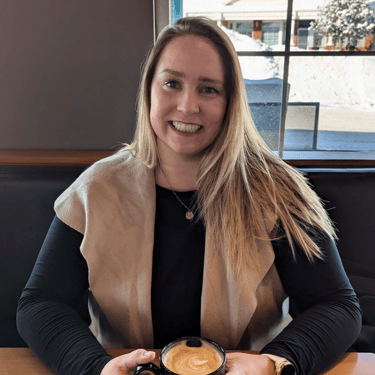
Supports Couples, Teens (12+), Adults
Supports Couples, Teens (9+), Adults, Families
Supports Adults and Teens (16+)
Supports Adults and Couples
Frequently asked questions
How do I know if I need therapy for my anxiety?
When anxiety is disrupting your everyday life, it is worth considering therapy. You may experience persistent anxious thoughts, insomnia, or physical symptoms such as chest tightness, nausea, or a racing heart. Once you find an anxiety therapist in Calgary, they can assist you in knowing whether what you are going through is normal stress or something more chronic. When anxiety prevents you from living the life you want, the decision to consult an anxiety therapist in Calgary should be made.
What happens in the first session with an anxiety therapist?
After you find an anxiety therapist in Calgary, the initial session will focus on getting to know you and learning about your experience with anxiety. Your therapist will inquire about your symptoms, when they began, and how they are affecting your life. You will develop goals for therapy together, based on what you want to accomplish, whether it's to relax your mind, overcome panic attacks, or overcome avoidance behaviours. Therapy is always at your own pace.
What therapy approaches work best for anxiety?
Everyone responds differently, so therapy approaches are chosen to fit your unique needs. Cognitive Behavioural Therapy (CBT) helps you notice the relationship between your thoughts, feelings, and behaviours. Acceptance and Commitment Therapy (ACT) is a method that teaches you to detach from your thoughts, cope with difficult emotions, and live aligned with your values, so that anxiety no longer controls you. EMDR can help you work through past traumatic experiences that contribute to current anxiety. Emotion-Focused Therapy (EFT) helps guide you to understand, process, and respond to your anxiety in a safe way, reducing overwhelm and building coping skills. Each of our treatment methods is based on evidence of its effectiveness.
How long does anxiety therapy take to see results?
This is different for every individual based on the level of anxiety and the duration of time you have been having it. Some individuals may notice minor changes within a few sessions, such as sleeping a little better or feeling better prepared to manage racing thoughts. The aim is to reduce the level of anxiety and acquire skills to cope with it.
Let's Connect
Please fill out the form to request an initial appointment
or complimentary introductory call
Contact
hello@trilotustherapy.com
Clinic Hours
Monday: 5:00pm to 8:00pm
Tuesday: 1:00pm to 8:00pm
Wednesday: 8:00am to 8:00pm
Thursday: 8:00am to 8:00pm
Friday: 11:30am to 4:30pm
Saturday: 9:00am to 3:00pm
Copyright © 2025 by Tri Lotus Psychotherapy - All Rights Reserved
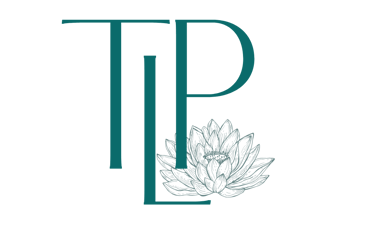

Land Acknowledgment: I gratefully acknowledge and honour that where I live, work and play is within the traditional territories of the people of the Treaty 7 region in Southern Alberta, which includes the Blackfoot Confederacy (comprising the Siksika, Piikani, and Kainai First Nations) as well as the Tsuut’ina First Nation, and the Stoney Nakoda (including the Chiniki, Bearspaw, and Wesley First Nations); and Métis Nation of Alberta, Region 3. The traditional Blackfoot name of this place is “Mohkinstsis”, which is also known now as Calgary.

